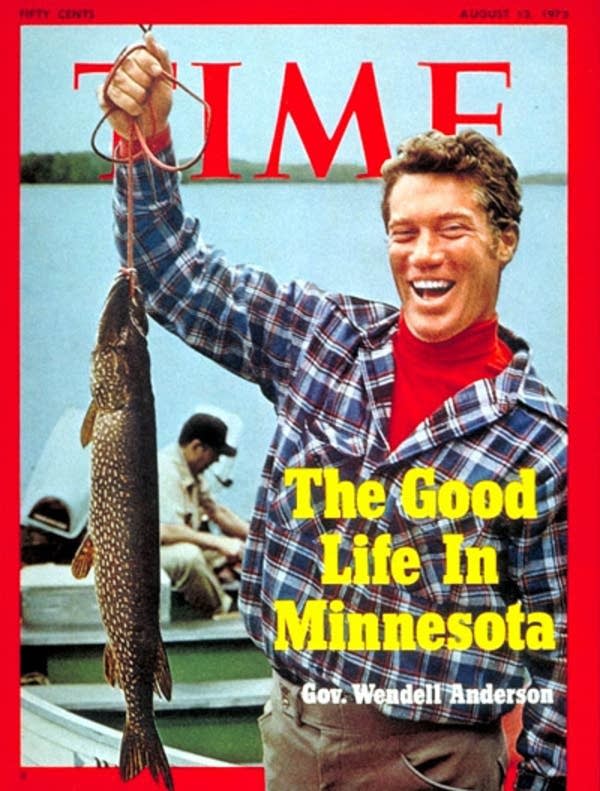A cautionary tale of a governor switcheroo

Go Deeper.
Create an account or log in to save stories.
Like this?
Thanks for liking this story! We have added it to a list of your favorite stories.
Throughout 2017, Minnesota Public Radio will celebrate 50 years on the air by sharing highlights from our archives, connecting Minnesota's past to its present. | This special production by MPR News originally aired Nov. 10, 1976.
MPR marks 50 years
• More stories from the archives
• Join the celebration, tell us your story
Turn Up Your Support
MPR News helps you turn down the noise and build shared understanding. Turn up your support for this public resource and keep trusted journalism accessible to all.
Minnesota was about to be down a senator in 1976 when Democratic Sen. Walter Mondale was elected as Jimmy Carter's vice president.
So two men devised a plan that would shake up three of the state's most powerful offices.
Mondale would give up his Senate seat. It would then be up to the governor, Wendell Anderson, to appoint a replacement.
But Anderson didn't choose anyone — he and Lt. Gov. Rudy Perpich made a different arrangement.
Anderson would step down from the governor's office, leaving Perpich in charge. Perpich would then make Anderson the U.S. senator. Mondale would become vice president and Perpich the governor.
That left Perpich and Anderson with the incumbent advantage in the 1978 election, in which both the governor's office and Mondale's old Senate seat were on the ballot.
It didn't work out so well for the DFLers.

Minnesota voters handed both men losses, and Republicans Al Quie and Rudy Boschwitz won the gubernatorial and U.S. Senate races, respectively. Quie won by more than 100,000 votes and Boschwitz defeated Anderson in a landslide — taking over 56 percent of the vote.
Four decades later, the governor's office showed it had some institutional memory. Gov. Mark Dayton, whose seat will be open in 2018, was recently asked about speculation he'd resign before his term is up. That would leave Lt. Gov. Tina Smith with the incumbent's upper hand, if she opts to run.
Dayton knew better than to risk a repetition of history. Citing the events of the late '70s, he said he'll finish his term, leaving the ever-growing slate of candidates to fight it out among themselves.
Dear reader,
Political debates with family or friends can get heated. But what if there was a way to handle them better?
You can learn how to have civil political conversations with our new e-book!
Download our free e-book, Talking Sense: Have Hard Political Conversations, Better, and learn how to talk without the tension.



